#non-denominational places of worship
Text
Forests are temples where ALL are welcome; where every 'God' man has ever imagined dwells.

#lunaladee photos#trees#forests#the first temples#non-denominational places of worship#original photography#original text
95 notes
·
View notes
Text
So I’ve been thinking about cultural Christianity lately and how people tend to get very upset about it without really understanding what it is, so here is a primer
Cultural Christianity is not a choice you make. It does not mean you are Christian, or even that you remotely like Christianity; a lot of people who vehemently hate the religion do so because of their own cultural Christianity
It is not a shortcoming, or a moral failing, or a sin. It just means that the culture you were raised in was predominantly Christian.
Note: I did not say “majority Christian”. Christians don’t need to be a majority to have a dominant cultural influence
Cultural Christianity means you inherently understand and probably use swearwords like “damn”, “hell”, or a variation on the name “Jesus Christ”
It means when I say cultural Christianity is not a sin, you understand exactly what I mean without needing to have it explained - and you probably know the phrase “original sin” or “seven deadly sins”, even if not in full detail
It means hearing about Hades, god of the dead, wealth, and volcanoes, and assuming he’s the bad guy of Greek mythology… y’know, like Satan
(EVERYONE went to Hades when they died. The Elysian Fields, where the best heroes went, was in Hades’ underworld. The Eleusinian mysteries, a cult to Demeter and Persephone, was basically about asking them to tell Hades to give you a cool afterlife
And he would cuz he drank his “respect wife” juice if not all of his “respect women” juice. Did still kidnap her. But she is a major feature and often makes the decision herself or influences his when they’re mentioned together
Meanwhile, people try and cast Zeus as a good parent)
It means having to have a dreidel, a menorah, or a kinara explained to you at a time when you already knew about Christmas trees and Santa
(Yes, Santa Claus, Saint Nicholas, major host of the Mass of Christ, is culturally Christian. Even though Coke invented his aesthetic - that’s the “cultural” part)
It’s when you go to make up a new non-religious or pan religious winter celebration… that is centred around a day with family and gifts which is obviously the 25 of December. Maybe counting down 12 days before
It’s defaulting to calling a place of worship you don’t know the name of a “church”
Cultural Christianity is not something people have a choice in; you don’t pick where you’re born, and there are so many other cultures in places like Canada, America, and Britain that are culturally Christian out the ass! But… you will catch Contact Christianity in any of these places
It’s damn near impossible to consume any American or most Western media without brushing across it; cross imagery is everywhere, Christian demons and devils sneak into media all around the world
Western (and some other) Gothic fashion leans heavily on gothic architecture and, yeah, heavily Catholic imagery
Now, brushing across the media in other parts of the world does not impart the same level of cultural Christianity as growing up in a city with four churches on a single block and a Santa Claus parade
And you can grow up heavily in an entirely different culture even in the Bible Belt (but you know what Bible Belt means); you don’t have to abandon all other culture just because Christianity has a chokehold on your home
But when December (or fucking November these days) hits and you hear Mariah Carey in 3/6 stores, yes, you probably have some cultural Christianity
You sure as hell don’t need to be able to name half the denominations (can you name more than 4?), you may never set foot in a Christian church in your life, and still have a cultural Christian influence
If your street names have “saint” in them
If there are crosses or angels on more than half the graves in a cemetery
If you know how to cross yourself but aren’t really sure when you learned; you didn’t look it up or do research to find out
Now note: none of these have an inherent moral judgement attached to them
It’s just about what the culture you live in has taught you about the world, and there’s no culture that is magically the Right One or better than the others
There’s no reason to expect even specifically Christian culture to be the same around the world; it isn’t. It has the same root, but what flowers from the soil is another matter entirely
There is nothing wrong with acknowledging that you have culturally Christian influences and biases; being human is 90% absorbing information from the world around us and half processing it at best - there’s just too much input, and intentionally filtering out Everything Christian Ever?
Well unless you started at 2 years old, odds are pretty good it’s not really a personal choice kinda thing
And you cannot compensate for these influences unless you acknowledge that they exist, that you did not choose to form them, and that you do get to choose how they affect your actions going forward
Christmas stuffed a bunch of other religious traditions into a single package to make itself popular, but if you learned them as Christmas traditions first… do I even need to say it?
#cultural christianity#especially at this time of the year#it just bothers me when people try and deny it#like they’re ‘too good’ to be formed by the society they grew up in#no friend#your deadass brain formation is affected by your first language
353 notes
·
View notes
Text


All Abrahamic religions claim to be monotheistic, worshiping an exclusive God, although one who is known by different names. Each of these religions preaches that God creates, is one, rules, reveals, loves, judges, punishes, and forgives.
However, although Christianity does not profess to believe in three gods—but rather in three persons, or hypostases, united in one essence—the Trinitarian doctrine, a fundamental of faith for the vast majority of Christian denominations, conflicts with Jewish and Muslim concepts of monotheism.
Since the conception of a divine Trinity is not amenable to tawhid, the Islamic doctrine of monotheism, Islam regards Christianity as variously polytheistic.
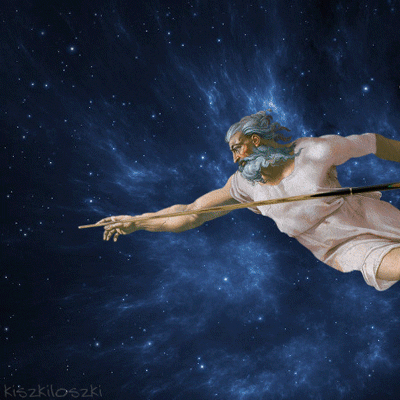
Judaism and Islam have strict dietary laws, with permitted food known as kosher in Judaism, and halal in Islam. These two religions prohibit the consumption of pork; Islam prohibits the consumption of alcoholic beverages of any kind. Halal restrictions can be seen as a modification of the kashrut dietary laws, so many kosher foods are considered halal; especially in the case of meat, which Islam prescribes must be slaughtered in the name of God. Hence, in many places, Muslims used to consume kosher food. However, some foods not considered kosher are considered halal in Islam.

With rare exceptions, Christians do not consider the Old Testament's strict food laws as relevant for today's church; see also Biblical law in Christianity. Most Protestants have no set food laws, but there are minority exceptions

The Seventh-day Adventist Church (SDA) embraces numerous Old Testament rules and regulations such as tithing, Sabbath observance, and Jewish food laws. Therefore, they do not eat pork, shellfish, or other foods considered unclean under the Old Covenant. The "Fundamental Beliefs" of the SDA state that their members "are to adopt the most healthful diet possible and abstain from the unclean foods identified in the Scriptures".
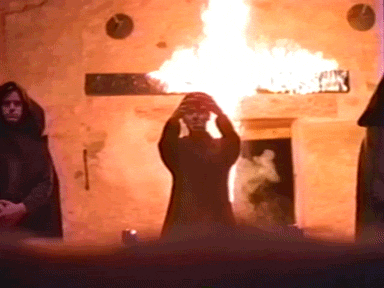
Proselytism
Judaism accepts converts, but has had no explicit missionaries since the end of the Second Temple era.
Judaism states that non-Jews can achieve righteousness by following Noahide Laws, a set of moral imperatives that, according to the Talmud, were given by God[k] as a binding set of laws for the "children of Noah"—that is, all of humanity. It is believed that as much as ten percent of the Roman Empire followed Judaism either as fully ritually obligated Jews or the simpler rituals required of non-Jewish members of that faith.
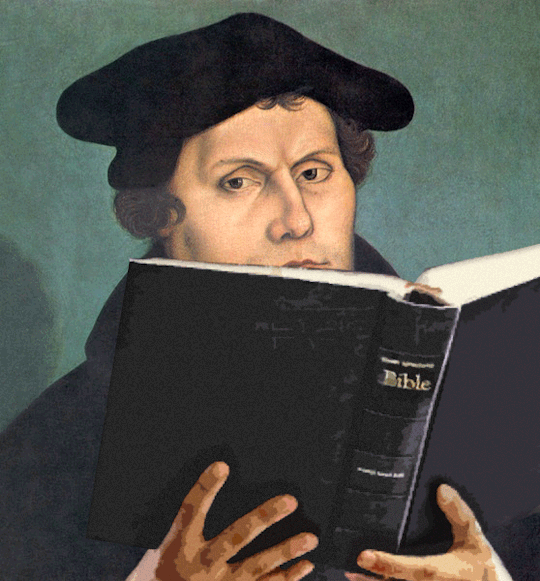
Christianity encourages evangelism. Many Christian organizations, especially Protestant churches, send missionaries to non-Christian communities throughout the world. See also Great Commission. Forced conversions to Catholicism have been alleged at various points throughout history. The most prominently cited allegations are the conversions of the pagans after Constantine; of Muslims, Jews and Eastern Orthodox during the Crusades; of Jews and Muslims during the time of the Spanish Inquisition, where they were offered the choice of exile, conversion or death; and of the Aztecs by Hernán Cortés. Forced conversions to Protestantism may have occurred as well, notably during the Reformation, especially in England and Ireland
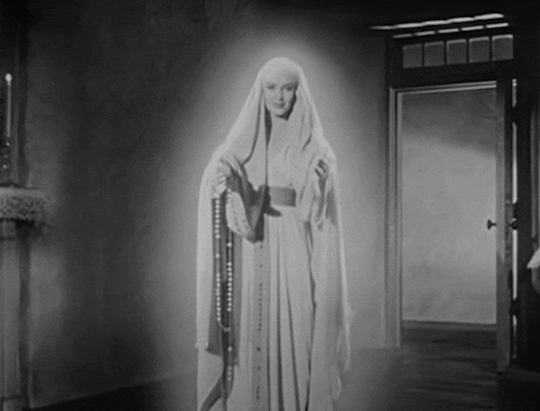
#kemetic dreams#islam#jews#judaism#talmud#christians#christmas#christianity#jesus christ#christian broadcasting network
56 notes
·
View notes
Note
heya! can u tell me more about liturgy? i want to participate im a nondenominational catholic but i want to be more active in my faith! is it too late to start?
Welcome, beloved!
"Liturgy" comes from Greek and means "public service," and Christians use it generally to mean the order of events/ritual in communal worship, although it can sometimes refer to personal worship, like the liturgy of the hours.. Different denominations range in their formality and structure, but there is a pretty standard order in at least Western churches with traditional liturgies and from what I can tell, Eastern rites have very similar ideas/sections. Encyclopedia Britannica has a pretty good basic history of Christian liturgy, and the Wikipedia page has some good sections/links.
There are liturgies for different times of day and events, but the most common/important Christian one is the service of Holy Communion, practiced every Sunday. This comes from two places I can think of. First, Judaism has the practice of keeping the Sabbath, and the first Christians, being from Jewish communities, already had the ritual of weekly worship, but, partially to differentiate themselves from Jewish law but also as an acknowledgement of the most important event in the Christian faith, the Resurrection, began to meet on Sundays. Second, Jesus at the Last Supper commanded us to "do this in remembrance of me," and Paul tells us that "whenever you eat this bread and drink this cup, you proclaim the Lord's death until he comes." We eat and drink as Jesus taught us, and can see that even in the first generation of Christianity, the holy meal was central.
We worship together because religion is interpersonal, and Jesus did not come simply for us personally, but for us all communally. My response to the missionary's question of "Do you have a personal relationship with Jesus Christ?" would be "No, I have an interpersonal one." (Unlikely my father, who said, "Yes, I eat him.") Obviously there is great diversity of situation/location, and joining a church is not in the cards for every person. But, nonetheless, we must live out our faith with others, whether that's church, family/friend gatherings, interfaith worship, or any kind of community gathering/serving. And I'll say it more later, but no, it's not too late to begin this or move in a new way.
Here is, very generally, the order/content of the liturgy of Holy Communion I know, which I think is almost identical to the Roman Rite:
Confession/absolution: We a general confession of sin, ask God to help us, and the pastor announces God's forgiveness. Private confession is not the norm in Protestant churches, so this where we bring our confessions to mind before God.
Procession/hymn: In my church, the pastor does the confession from the back of the room, and processes, with the assisting minister, acolyte(s), and crucifer, to the altar, while we sing an entrance song.
Kyrie/litany/hymn of praise: We sing petition and praise—the songs/chants change depending on the season.
Prayer of the day/collect: This prayer changes every week and gives the context for our gathering. It references whatever season we're celebrating and sometimes the Bible readings we'll hear.
Scripture readings/lessons: This is generally one reading from the Old Testament and one from the New Testament non-gospel books (Acts/letters/Revelation). The cycle of readings throughout the year follows the seasons and tells overarching stories/themes.
Psalm: The one book we read (or, sing) from every single week is the book of Psalms. In our church, we perform a call and response chant for that week's psalm in between the OT/NT readings.
Gospel verse/acclamation: As the Bible is being brought to the pastor, we usually sing "Alleluia, Lord, to whom shall we go?" including John 6:68-69, but during Lent we sing "Return to the Lord your God" from Joel 2:13.
Gospel: A reading from Matthew, Mark, Luke, or John relating to the season/other readings.
Sermon/homily: The pastor preaches on the readings or season, usually providing further information about them and giving us a lesson to take with us for the week.
Hymn of the day: We sing our second hymn here. This is usually the one most thematically relevant.
Creed: Either the Apostles' or Nicene Creed is recited. This is a weekly affirmation of our shared beliefs, uniting us with every Christian across time and denomination who has said these words.
Prayers of the church: Multiple intercessory prayers are read relating to the season, current events, members of the church, etc. These conclude with a remembrance of the dead, naming those who have recently died and making space for people to call out their own loved ones.
The Peace: Historically, this ritual greeting was the "kiss of peace," but all churches that I've been to have gone for handshakes or hugs instead. I think Catholics do the Peace after Communion, which honestly makes more sense, but this is where it is for us. I have appreciated it recently, as I'm often crying after the remembrance of the dead.
The Offering: The offering plate is passed around while singing, and people are welcome to make donations. These funds go toward paying the pastor and organist, worship supplies, upkeep of the church building/grounds, members in need of support, and donations to charity. After collection, we pray that we will use the money in service of God and our neighbor.
Preface/Eucharistic prayer/Great Thanksgiving: The pastor begins holy communion with a recitation of Jesus's words at the Last Supper, and calls the Spirit to be present in our meal.
The Lord's Prayer: The prayer Jesus himself gave us to pray! Everything we need to say, right there. Maybe we should save time and just do this?
The Communion/Eucharist: We all come forward and receive communion. Churches have varying levels of real bread and wine—we get real wine but little wafers, some places go for grape juice. This is the central act of gathering—we can read the Bible on our own, we can pray on our own, but we cannot share a meal by ourselves. Breaking bread together is the fundamental Christian ritual, however that materially/theologically shows up in our communities.
Songs of thanksgiving/prayers: We give thanks for the meal, and pray that it will sustain us.
Closing hymn: Catholics don't stay for all the verses of this, it seems. I've been the last one singing before—as a visitor. This is my main (loving) critique of y'all's liturgy.
Benediction: (See, we're not allowed to leave because we have to wait for the blessing, however many verses of the hymn there are.) The pastor recites the priestly blessing from Numbers: "The Lord bless you and keep you. The Lord make his face to shine upon you and be gracious to you. The Lord look upon you with favor and give you peace." The assisting minister then sends us with these words: "Go in peace, serve the Lord. Thanks be to God."
I find liturgy really valuable for lots of reasons. Just on a base level, I crave rhythm and ritual. I've said the words my whole life, which means I don't have to know what to say or do, I don't have to get anything right or perform. I meet every week with a group of people who want to say the same words while coming from so many different kinds of lives. We want to tell stories and sing songs together, the same as Christians have since the very beginning, the same as humans have since creation. Every week, I am reminded of what this is all for. It's a kind of reset, and I keep needing it.
It's also a foundation for our community--the church is our gathering space, where we share meals, where we mourn our dead, where we organize, where our children play. The liturgy grounds us in common stories/music, and we take this with us to everything else. Many people who have left the church have said that there's not really an societal equivalent, and I mourn the fact that the church has not been a space for everyone, and that there aren't similar secular spaces. Especially in the sharing of money and time, I've learned really valuable lessons about community from the church.
It is never too late to need this, to join in, to attend a church, to start praying, to get baptized—these things are not age-dependent, and they come to us all differently. The disciples were old and young, the saints have come to God at all different times, and our lives do not all follow the same pattern. There's that joke about how Jesus didn't start his ministry till age 30—but even if you're way past 30, you only need a day in which to live seeking God, and God willing you have many days ahead of you.
Maybe this has been on your mind for a while, and it feels like you've missed your chance—you haven't. Each day we recommit ourselves to life, which means each day we have the opportunity to change it. I have never been to a church that would look down on someone beginning their church participation at any age—even the most annoying conservative churches I can think of love when people start coming.
I don't know what the church options are where you live, but I'd encourage you to visit some! Attending is not a promise to join or keep attending, just a participation in a liturgy. There may be restrictions for taking communion depending on your baptism/membership, but there are no restrictions on coming and listening and singing. And even if just once, you'll have participated in the unfolding story of Christian communal worship, and made it better by being yourself and coming with love.
There are churches who have completely different liturgies/practices—Quaker meetings are a great example. As I mentioned, there are personal liturgies that, while not a replacement for community, can introduce ritual into our homes and keep us faithful us as we seek community (I'm currently practicing Phyllis Trible's Divine Hours). Tradition sustains us, and is continuously being created. Wherever you find your home, whatever songs you sing, may God go with you, and may you never feel it is too late to start absolutely anything.
<3 Johanna
37 notes
·
View notes
Note
Re: BITE model posts
Idk i feel compelled to chime in in about how tiring it is to see the word cult have morality attached to it and then used as some kind of pejorative (like when ex-caths call the church a cult) but I feel like it's often more useful to use the word purely to describe the non-mainstream status of certain beliefs or practices. Like obscure religious deities are referred to as having a "cult" because their worship is limited to highly specific places and communities. Calling a religious denomination with m/billions of members across various backgrounds seems hardly appropriate of "cult" status.
I'd dare to extend this to then say even MLMs aren't a "cult" anymore because they're like... frickin everywhere. I'd be more surprised if a person says they've never met a single person who wasn't vulnerable to like Mary Kay or some other cosmetic brand scheme.
i literally thought you meant marxist-leninist-maoists that acronym is going to kill me. anyway you're missing my main point about the uselessness of the designation 'cult' because if it's only determined by how mainstream something is then that's not actually telling us anything about the degree of control or abuse in the group is it. like this is a completely useless distinction as you've outlined it and would only label any non-dominant religious or commercial (?) practice as a cult... like why lmao what is the point of that. this is precisely the kind of usage i was objecting to it doesn't tell me anything about characteristics inhering in the groups themselves
20 notes
·
View notes
Note
TELL US ABOUT QUAKERISM
This is an absolutely hilarious thing to find in my inbox in all caps thank you so much 😂 I was going to say something like, "I'll try to keep this brief" but realistically I know I'm gonna waffle so BRACE FOR WAFFLING.
Quakers - also known as the Religious Society of Friends - are a denomination of Christianity that was founded in the mid-1600s in the north of England. It was part of the Dissenters movement, which is a term for a collection of Protestant denominations that grew up around that time out of criticism, dissatisfaction and... dissent... with the Church of England.
The branch of Quakerism that I belong to is actually in the global minority for Quakers. Most Quakers worldwide belong to evangelical branches and I'm not at all clear on how their theology differs from mainstream evangelical Christianity.
Those meetings (the Quaker term for churches/congregations) are what's called "programmed", which means their worship takes the form of a service easily recognisible by most Christians with hymns, a minister, prepared readings from the Bible, etc. I really can't speak much to that side of things as I know almost nothing abou it!
In contrast, my branch of Quakerism - by far the most common in Britain and Ireland, and I think I'm right in saying the most common in Europe and North Amerca though I'm not 100% sure - is "unprogrammed". There's no service, instead we sit together for an hour in silence. That silence might be broken by any person taking part who feels moved to stand up and speak - this is called "ministry" and for theist Quakers, it's understood as being a response to the promptings of what some people call the Light, some people call God, some people call the Holy Spirit.
This unusual worship style is an expression of the foundational Quaker belief that nobody has more of a connection to the holy than anyone else. A minister isn't better able to speak to God than a layperson, and we place a lot of emphasis on speaking to your own experiences of the divine and respecting others' experiences. A phrase often used to describe this idea is "There is that of God in everyone."
As well as unprogrammed worship, this side of Quakerism has historically been very socially and theologically liberal/radical. Early Quakers were very involved in prison reform and abolition of the slave trade, and that social consciousness has carried through the centuried to see Quakers involved in all sorts of social justice causes from pacifism and anti-war work to climate justice and queer liberation.
Quakerism is a non-credal faith, which means there's no list of beliefs you have to subscribe to in order to be a Quaker. It's also non-sacramental, so we don't have things like christenings, baptisms, communion, etc.
There is a difference between being a "member" of a meeting and being an "attender", but the differences are largely administrative and effect what kinds of roles you can take in the meeting rather than whether you're considered a "full" Quaker or not. Those roles are things like treasurer or clerk - logistical roles related to the running of the meeting rather than spiritual leadership - and they change hands regularly.
That said, there are some basic concepts aside from "that of God in everyone" that guide most Quaker ideas. These are called "testimonies", and there's no total consensus on what they are - I have a feeling different Quakers in the world have a different list - but the ones I'm familiar with are Peace, Equality, Truth and Simplicity. Some people add Sustainability, personally I think that's accounted for under the first four, namely Equality and Simplicity.
The Peace testimony might be the most famous Quaker principle. Quakers are a pacifist group (though not all Quakers agree on what that pacifism should look like...) and have oppose war and violence in all sorts of ways, from refusing to join the military and being conscientious objectors to not buying their children toy guns and so on.
Equality is pretty simple to get your head round! If all people have something holy in them, they all deserve to be treated fairly. Quakers resist personal and structural inequality, and we organise ourselves in a way that reflect that as well as working to make the world around us more equal and fair. This is both on a broad scale and on a granular one - some Quakers still use "thee/thou" because early Quakers did as a way of rejecting social hierarchies. Personally I prefer not to use salutations which stem from the same thing.
Simplicity is often simplified to a kind of general anti-consumerism, which is why I think Sustainability falls under this (I think it goes under Equality too because of the social impact of climate change etc). With this testimony, you're encouraged to find joy in simple pleasures and to appreciate the world around you. You don't need more stuff to be happy, and we owe it to ourselves and others to think carefully about how much we consume, what we consume, and why.
Finally, Truth or Integrity is about living up to your principles. It's about being honest with yourself about whether you're living your faith and putting your values into action, and about speaking the truth in all cases. Early Quakers refused to take legal vows or oaths, because they committed to always speaking the truth so it made no sense theologically for them to say "OK but for real now I'm actually being honest". I'd still "affirm" in court rather than take a vow, for the same reason.
All in all, I'm really proud of being a Quaker and personally I can see a lot of Quakerism in Monstrous Agonies (and all my writing!) which isn't very suprising because Quakerism informs a huge part of my life and worldview. It's not some kind of perfect, historically spotless religion - as well as being abolitionists, some Quakers were also slave-owners, for example, or were involved in the residential schools for Native Americans, and individual Quakers are as flawed as any other group. But I think we make a good effort at repairing those wrongs, being honest about our failings and making reparations.
Also, the porridge oats are nothing to do with us.
#im not sorry and im not going to pretend to be#i am simply not a person capable of being asked to tell someone about something and not Telling Them#monstrous askbox#always open to questions about quakers!!#quakerism#i am and remain the best looking and most fuckable quaker in podcasting
162 notes
·
View notes
Text
Protestant Horror Aesthetic

Sleepy Hollow directed by Tim Burton, 1999
Villainy wears many masks, none so dangerous as the mask of virtue.
I’ve seen a few posts presenting the case that Catholicism is inherently more compatible with the Gothic than Protestantism. That the imagery found inside a Catholic church invokes feelings of Gothic horror in ways that Protestant places of worship do not.
And I do not disagree. But there are horror stories that are predicated on a Protestant aesthetic. Stories in which the horror is specifically Calvinist in nature. Stories in which, rather than statues of Christ crying rubies and the stigmata and sexual repression, you have empty crosses in snow white sanctuaries and self abnegation and also sexual repression. So much sexual repression.

The Witch directed by Robert Eggers, 2015
Wouldst thou like the taste of butter . . . wouldst thou like to live deliciously?
The horror of The Witch is the Puritanism itself. This most rigid version of Calvinism is presented as so bleak, so cruel, so hopeless that it becomes perfectly logical that a good girl would trade her soul for the mere offer of deliciousness.

The Night of the Hunter directed by Charles Laughton, 1955
What religion do you profess, preacher?
The religion the Almighty and me worked out betwixt us.
In The Night of the Hunter, a serial murderer and con man takes on the mantle of itinerant preacher to worm his way into the household of an unfortunate widow. In one of the most chilling scenes, the preacher scolds his new wife for expecting sex on their wedding night. The film subverts the threat of rape with chaste shame and humiliation. The preacher uses Biblical language to manipulate, scold, and confuse. The preacher’s own repressed sexuality is as frightening as if he were a rapist.
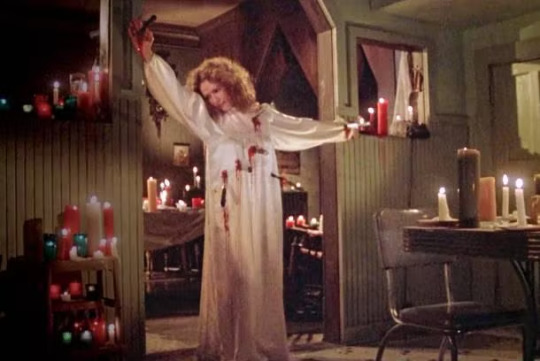
Carrie directed by Brian de Palma, 1976
Carrie doesn’t make this list. While her mother’s rantings are perfect pitch Baptist preacher, there is also a lot of Catholic imagery happening. Margaret’s death is staged to recall the martrydom of St. Sebastian. I’m not sure what kind of Christian she’s supposed to be. The horror is definitely religious and fundamentalist, but it’s some kind of mix between Catholic and First Southern Hills Gothic Missionary Non-Denominational. Or something.
Feel free to add to this list. I would especially like to see some non-U.S. films or novels that utilize a Protestant Horror Aesthetic. With all the wars and murder that happened during the Reformation, there must be some.
#gothic horror#catholic horror#protestant horror#calvinist horror#the witch 2015#sleepy hollow 1999#the night of the hunter#carrie 1977
74 notes
·
View notes
Note
I really want to say to people who don't think cultural Christianity is a thing to come to Ireland and breathe in the cultural Catholicism. The 6pm news is at 6:01 because the Angelus (now officially a non-denominational moment of reflection but you're fooling no-one) is played on the national broadcaster. There are statues of Mary of Lourdes at a lot of country crossroads. Schools could ask for a baptism cert until 4 years ago. Sacramental preparation takes place in class time. 1/2
2/2 I literally can't grasp how a majority religion would not have a cultural impact on how your society behaves. Even if you are non-religious or of the non-majority religion you are going to be living in it like a fish lives in water, e.g. Irish funerals are held much sooner after death than ones even in England.I hope this is coming over not in a condescending way, but just a chip in and agreement that "Yes, I see what you are saying and I agree that is definitely a thing that happens"
Oh, it totally comes across as supportive, and yes, it's that exactly, and it goes deeper than those things, too. Like, for example, their binary view on "Being Christian", because they were raised in religious societies that insisted that the only way to be a True Christian was to not only worship Jesus, but to engage in said worship in that community's specific ways. So from their perspective, as apostates who have rejected Jesus, it's done. They've done The Thing that makes them No Longer Christian. It's a binary, strict insider-vs-outsider perspective.
Is it any wonder that they get upset when the rest of us point out that those upbringings left deeper marks on them, and they still have more deprogramming and introspection to do? I would feel sorry for them... except for the fact that they are violent, abusive, and cruel, just like the communities which created them, and, just like those communities, their only solution to hearing perspectives they do not like and do not want to hear is to demand silence and conformity with their perspective.
58 notes
·
View notes
Note
oi i’m like two weeks late but 6 from the artist ask game??????
Ay no worries you're the first person who's asked anything from it! (insert confetti here).
6. Anything that might inspire you subconsciously (i.e. this horse wasn't supposed to look like the Last Unicorn but I see it)
Tbh I focus on a lot of theoretical biology for my mer stuff, for those I'd have to say either the 'ology' books and/or the Spiderwick Chronicles. I just love to break down the creatures in a practical or scientific way, but add into it like. More based in reality biology and anatomy and stuff.
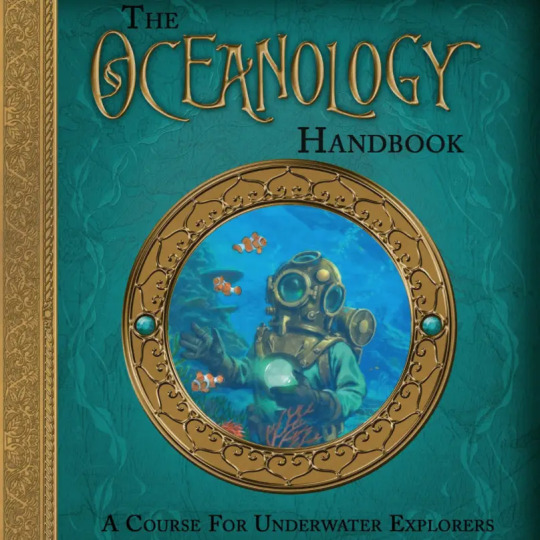
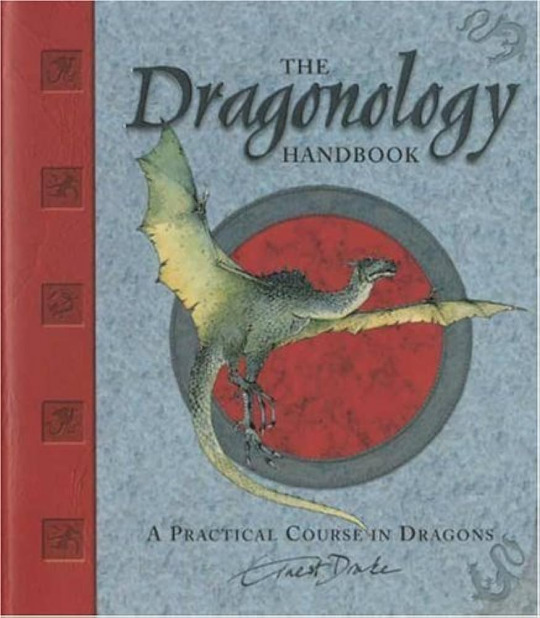
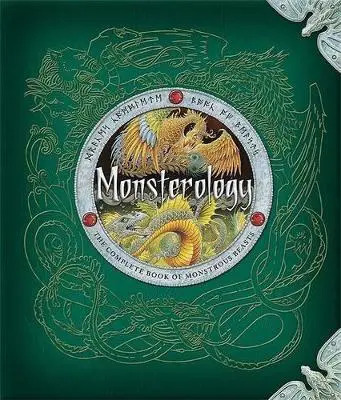
Above are some of my favorite 'ology' books, and below are some of my favorite Spiderwick monsters! (Not to mention, the entirety of the SCP wiki. I live there some nights)
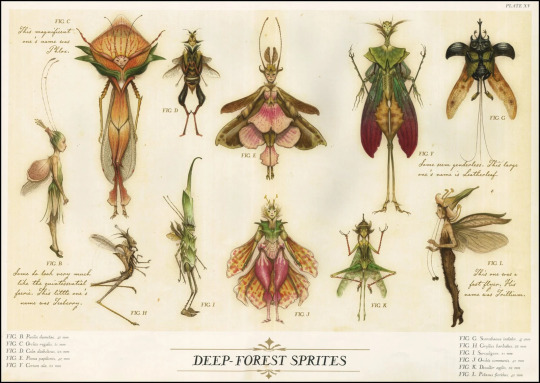
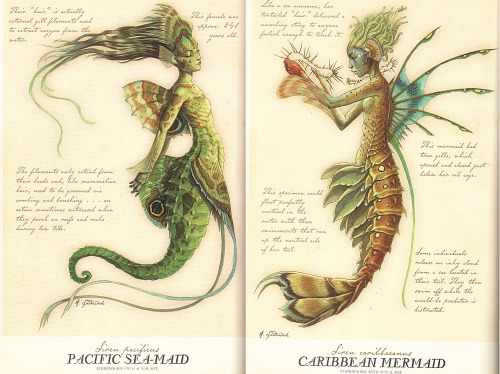
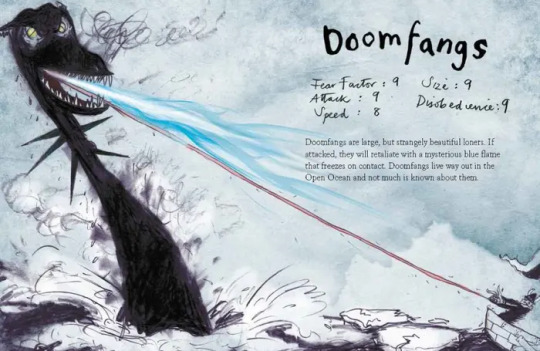
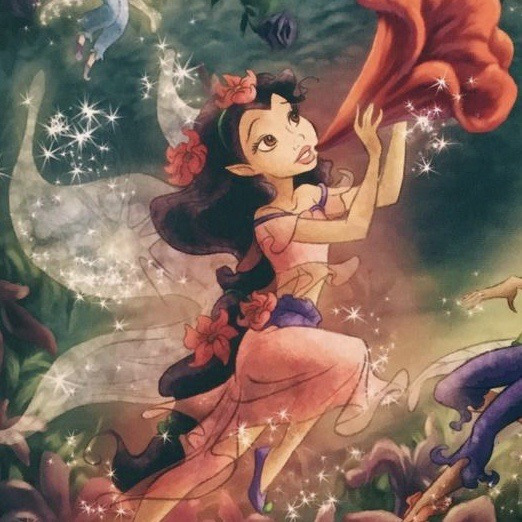
Oh yeah, and not to mention I also loved the How to Train Your Dragon and Neverland Fairies books as a kid.
Otherwise, I really enjoy werewolf movies. Like super really enjoy werewolf movies, my personal fav being An American Werewolf in London. I've found myself writing a lot of essays about the psychoanalysis of lycanthropy and werewolf transformation in film, as well as trying to subvert traditional lycanthropic themes in my academic art. But! I will always love werewolves.
Here's a link to my favorite part of the movie, the transformation! (Warning for nudity (David Naughton's butt) and a lot of screaming and agony and some AWESOME practical effects. No CGI here!)
youtube
Second to last, I super love tarot symbolism such as seen in Dragon Age Inquisition. I used to run an Etsy (before I realized Etsy was stealing 2k a month from me) where I made custom handpainted tarot decks, my pride and joy being my Attack on Titan deck, though I had plans to expand to other fandoms including Critical Role, my own take on the Dragon Age tarot, SCP, etc. And a lot of others people requested.
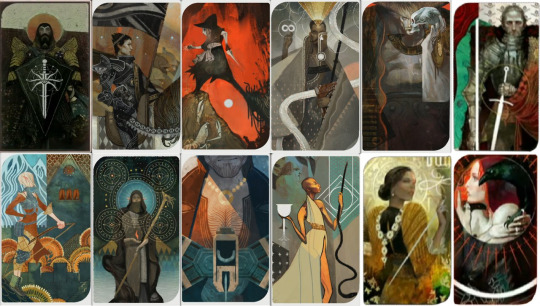
Finally, I grew up non-denominational (and still am), so I find religious symbolism to be really prevalent, especially in my more recent works. Such as but not limited to sacrifice, lambs, the innocent, community, undeath, etc etc. Probably because of the severe lack of genuinely beautiful places to worship in my home country. Tbh, that's probably why I always end up playing an aasimar bard or monk in D&D.
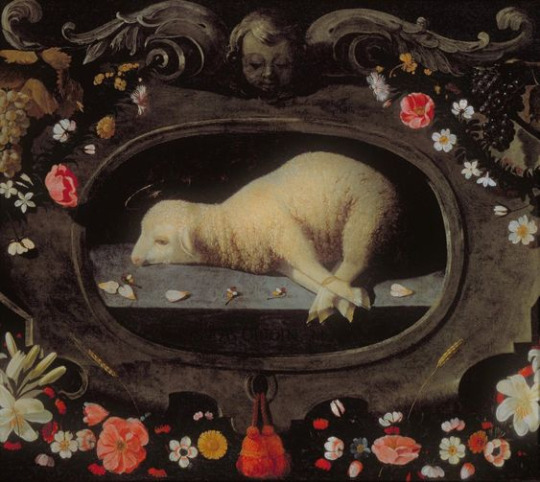
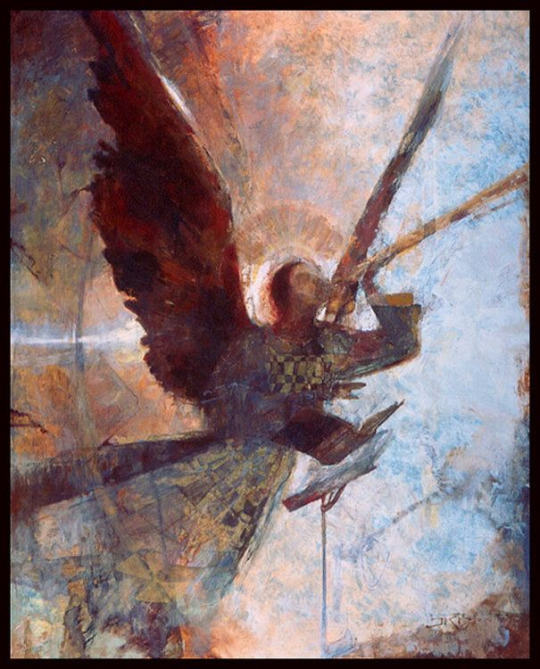
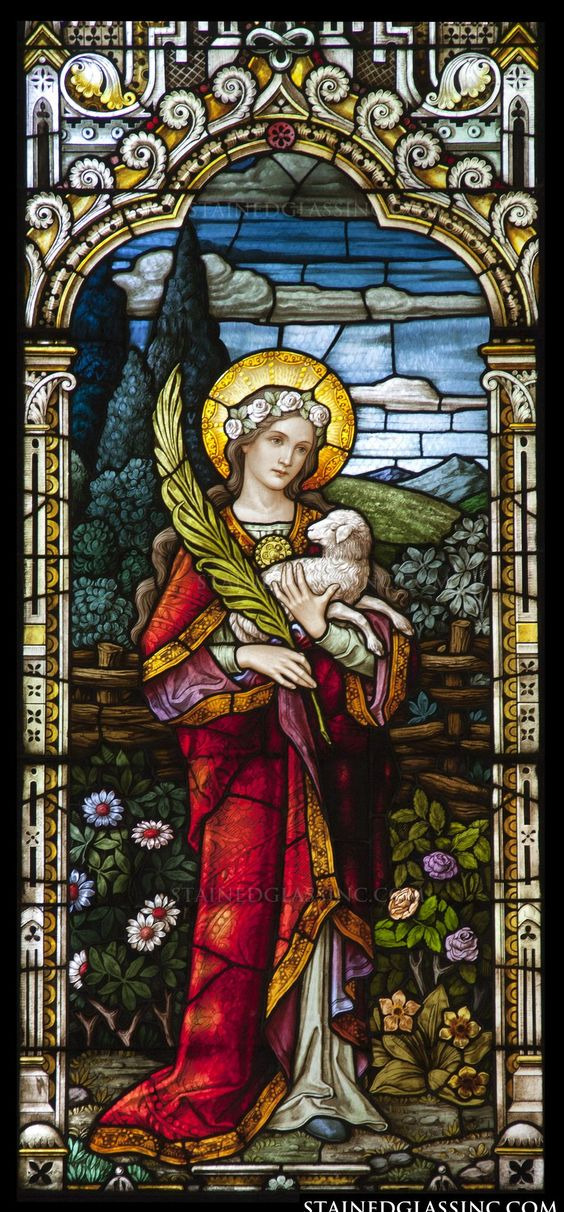
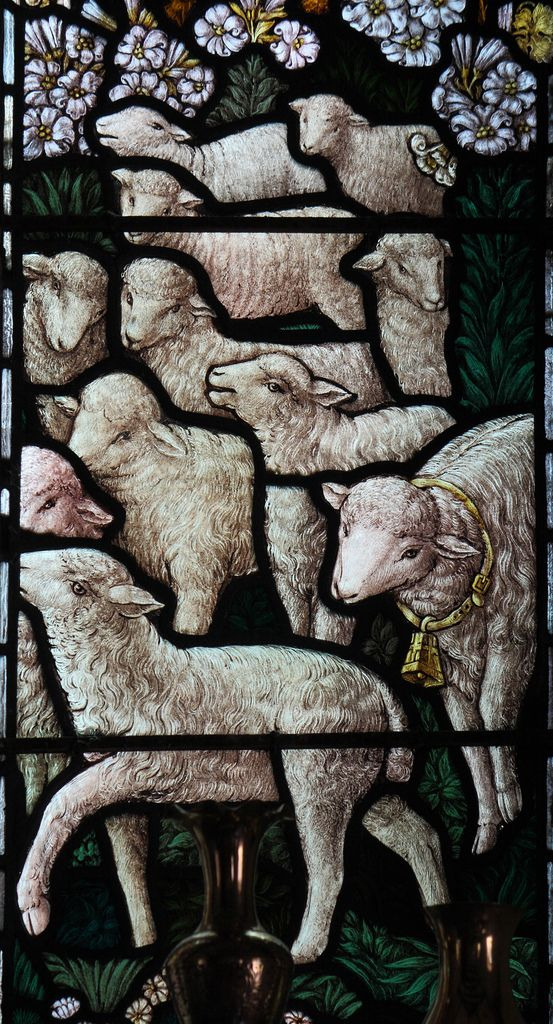
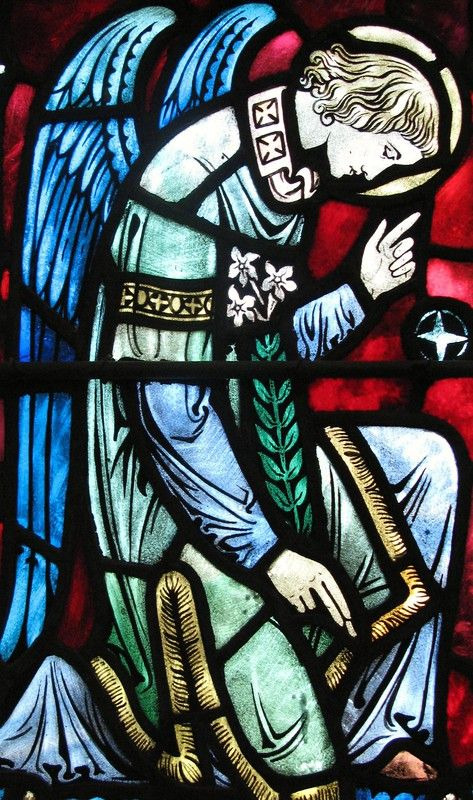
I think those would be my subconscious inspirations, at least those that I could think of after sitting here for a bit. Other than that, I love dark fantasy and medieval style fantasy games like D&D, Dragon Age, and so forth. And media like the X-Men, Stranger Things, Lord of the Rings, Ghibli films, and a handful of anime that I find really fun! (FALIN ART INCOMING hOLY SHI-) Other than that I really aspire to reach the lever of artwork of Alphonse Mucha and traditional early renaissance artists like the classic greats. Aka the namesakes of the Ninja Turtles. I know I won't ever get there, but it's still very fun to try and emulate!
(Funnily enough I was never allowed to watch stuff like H2O, Winx Club, or much else along those veins)
Sorry for the long ass answer, but this's been a fun exercise to figure out some stuff and to share!
Here's the Weirdly Specific Artist Ask Game for anyone else who wants to join the fun!
#answer#art#ask#illustration#artist ask#man this was fun#artist ask game#pixie hollow#how to train your dragon#dragonology#ology books#religious symbolism#dragon age#tarot#stained glass#mermaids#dragons#fantasy
10 notes
·
View notes
Text

MARY IS NOT THE MOTHER OF GOD : All praise to God, the Father of our Lord Jesus Christ. *GOD RAISED JESUS FROM THE DEAD* - 1 Peter 1:3
THE BIBLE DOES NOT SAY JESUS IS GOD AND NEITHER DOES IT SAY MARY IS THE MOTHER OF GOD.
Do not be cheated anymore by preachers, who twist God’s word for selfish gains or force you to follow 'man-made' religion, denominations & its ungodly traditions. STAY AWAY FROM RELIGIOUS LEADERS & THEIR PLACES OF WORSHIP (1 Tim 6:5 KJV, Col 2:8). Blessings to you & yours.
The Great Call of God (TGCG)
[A non-religious & non-denominational SPIRITUAL ministry]
https://www.facebook.com/TheGreatCallofGod
5 notes
·
View notes
Text
Religion: Califinidad(?)/Califinity
I created this fictional religion a few years ago in 2021, when I was obsessed with The Prom. Well, it is actually part of a crossover between BNHA and The Prom, then I added other series like Amphibia, The Owl House, and Attack on Titan (I know some people reading this are getting brain aneurysm lol). The idea was that, other than enriching the world, it will create a realistic scenario if people start developing powers. I would like to try add this in my dune fic, either as a minority religion or somewhat bi-worship like how Japan does with shintoism and Buddhism.
(Which willbe difficult since how the religion come to be).
The religion (depending on the denomination) focuses less on worshipping on said religion name (Califia) but more of what her and her... friends, disciples, group (?)'s beliefs are. It focuses on Califia's philosophy, spiritual belief, and ideology. The religion is imperative in quirk society (mainly in the Americas) because Califia and her group were first-generation quirk users. Califinity is frankly a quirk religion.
So the lore behind Calafia and her group is that Calafia :
1: was born in Central America (Guatemala likely), a Mestiza, and her family emigrated to California in mid-2040 (funny because the US was fucked at this point).
2: Form an academy/sanctuary for quirk children who were either abandoned by their parents or who came to learn how to control their power.
3: Is in a polygamous relationship with two women (lol, lmao even).
I based Califia on two characters: Xavier and Magento. She created the academy, Califia's Orphanage and Academy for the Gifted, to protect quirk children during a time when anti-quirk was horrific. However, unlike Professor X, she is very not a pacifist or the idea co-existing with non-quirks. She won't go antagonizing non-quirks society (or the government), but she is very "don't fuck with us and we won't fuck with you". Naturally, the government does so, and led a shadow war between them.
The academy, which is now a pro hero academy (federal-level), is located in Solano County, CA because I'm a California gal (and also California was like, one of the safest place to be a quirk during that time).
So, Califia's friends/disciples/group were quirks (naturally lol) and they were mostly either ciswomen or genderqueers (there is only one man and he is a transman). They were also non-white, either agonistic or not deeply religious, leftists, and educated. During a time when 1. People were developing powers that are coming out of nowhere; and 2. The US was just coming out of a horrific civil war. So they try to figure out why people were having powers. These will lead to the fundamental aspect of the religion.
They believe that people individually have energy, similar to souls/spirit. This energy helps form the universe and keep it stable. When a person dies, their energy/soul/spirit dissipated and merged with the universe. How quirks come to be is that quirks are the manifestation of a person's energy. The more powerful a quirk is, the greater the person's energy is. Sometimes, a person's energy, which is supposed to be nontangible, merged more directly to its host, and that is how mutation quirks are formed.
This helps scientifically explain when some quirks, like Momo, could defied thermodynamics.
Calafinity also suppose have a holy book, similar to The Bible. How the book were structured that it contains Califia's and her group 13 journals. The book is structured by beginning what Califia's belief how quirks come to be (explaining spiritually), then categorized Califia's early life (which is pitiful before her quirk awakening) chronologically. Then, it will lead into the 13 disciples' journals, each explaining their early life, their quirks awakening, and how they met Califia. Their journals will also explain how they believe how quirks and, by proxy, the main religion spirituality. So, the Books will likely come in 2 versions: one that is categorized by events, belief, and the disciples' views on Calafia; or, the Book separates the journals. However, there are important chapters in the Book: the final years of Calafia's. Actually, the chapter for the last days of Califia's, which she was killed in, is called "The Final Ballad" or "The Ballad of San Francisco.""
Califia has an archnemesis. The archnemesis isn't viewed as The Devil (though some denomination do view him as such), however, they view him as an antithesis of Califia's value. The archnemesis, named Dreadmond (he has many other aliases), is a quirk supremist, and by meta, I will view him as the Americas (or at least, in the US) counterpart of All for One. However, unlike him, Dreadmond does not work in the shadow. He is at the center of his legions (?), wnd is so in every battle. he makes sure that he is front and center. His philosophy is malleable depending on the era and followers, but he very much believes in might and Social Darwinism. He is charismatic, energetic, and authoritative, which allowed him to attract many meta-kinds (quirk-kinds). It also helped just how fucking awful having a quirk doing those time.
Califia and Dreadmond, initially, had informal agreement of not interfering with one another in their 30s (humans, by this time, double their lifespan). Both were already in a shadow war with the government, were at different coasts with Dreadmon and his followers being on the East Coast, and did not want to further weaken their cause. However, Califia utterly depised Dreadmond: even though Califia focused on quirk-kinds and hated the discrimination they face, she had no issue with non-quirks, especially ones who are sympathetic or helping their cause. Dreadmond, meanwhile, is a genocidal, eugenic tryant who believes non-quriks should, at best, be serfs that serve quirks. Later on, as quirk-kinds become the majority, Dreadmond starts changing this view, now harsher on weak quirks. Non-quirks, which he refers to as Roto (broken in Spanish), should be eradicated.
So, he is very much a horrible human being. Also, he is Puerto Rican lol.
So, while Dreadmond wants to dominate over the Americas (or, at least, the US), Califia wants to create a quirk society, locating on the West Coast, or at least California. Other than being a Cal-gal (and me being bias), California is isolated from the rest of the country thanks to the Sierra Mountains, the other side of the country, and far more tolerable compared to what going on past the Mississippi River.
How the conflict between them happened escalated suddenly and quickly. Dreadmond and his followers are, being bluntly, terrorists and though made life hellish in the East. His actions also increased anti-quirks sentiment and caused many quirks to migrated to the West Coast (by BNHA era, California has a population of 80 million, Oregon 9 million, and Washington (goes by different name) 13 million). There were some arguments between them, more in the likes of "can you maybe fucking chill for a moment?" "How 'bout you 🫵 chill." I don't know what really lead into this but one of Dreadmond's followers killed one of Califia's lover. All of a sudden, Califia and Dreadmond were in war. And Califia wants to kill him.
The war was short (lasting like six months), but it was brutal and bloody. Califia managed to create a truce with the US government (it more like "don't ever fuck with my people again and I will give you his head") which led into destructive battle. The final battle at San Francisco, which lasted for a day, destroyed almost half of it. Half of Sunset District, most of Market Street and the Financial District were just obliterate, leveled to the ground. The fight between Califia and Dreadmond pretty much ended not only the battle but the war itself and began the Dark Era (or Vigilantes Era, idfk anything about bhna history lol).
Califia was killed in the battle, and Dreadmond vanished, believing that he was either killed or went into hiding (he was actually hibernating beneath the Golden Gate Bridge waters). Her disciples were factual due to her; she was adhesive, the most important person of their group, and what held them together.
I didn't really talk about the disciples, mainly because I don't have a name for them (lol), but they're important in Calafinity, especially some who help disseminated Califia's teaching and belief, and one who mystified her. I gonna be referring them as their alias since it helps me. The most imperative figure was The Apostle, the youngest of the disciples (if Califia was in her mid-30s before her death, then The Apostle was likely in her late teen). When the disciples were factual, The Apostle spread about Califia, either her beliefs, her philosophy, her deeds, and even the possibility she was actually a deity (I also think the internet will be somewhat gone so she has to go it the old fashioned way). I would like to say that one of the denominations - one of the most popular ones, has a somewhat systematic structure (which is something Califia will actually hates lol), and it's dominanted in Northern California- will be named after The Apostle.
There is The Prophet, whose quirk is clairvoyance (though vaguely). There is The Man, and he is called that because I thought it was funny. Maybe The Lover for one of Califia's lover.
I don't know much about holidays. The Final Ballad will certainly be a holiday; ending the battle and war, stopping Dreadmond's tyranny, and for Califia's death/transcendence. However, do of how imperative quirk is to Califia and that Calafinity is a quir-religion, a child gaining their quirk will likely be one of the important day for them. For Japan, a quirk awakening will be a simple "Oh that great!" moment. For Califinitans, it is a celebration, a day where the community gathered at the local temple, throw a party, and formally welcome the child. Parents are required to mark the time and date when their child's quirk were awaken. Because of this, people usually celebrate two personal days for themselves: Birthday and Awakenday.
I certain I said this already, but Califinity superseded Christianity in the Americas, becoming the dominant religion both continents. However, this happened after The Great Blooming. The Great Blooming was an event a century (maybe half a century?) after the Final Ballad. It is similar to the Baby Bloom, except instead of having a population bloom, the ratio between non-quirks and quirks (1 quirk to every 4 non-quirks) flipped. Now, more than half of children were having a quirk awakening, and this led to another civil war, referred to as The Neo War (Human Purist teaming up with Neo-Confederates) (Also, the West Coast went mostly unscathed, lol)(also, Dreadmond was in). Doing a time where the majority are irreligious, horrific events occur, and the new generation were quirks, naturally Quirk-kinds will latch onto Califinity.
To be honest, I can't really think of anything else. There are other quir-religions in my bnha world au. There is a non-religious version of Califinity called Califinism, mostly about Califia's philosophy about quirks and how it should be used (she is a social individualist). All Might, Toshinori Yagi, is a Califinist.
Can't really think anything else, bye 👋.
#bnha#mha#boku no hero academia#my hero academia#fanon#bnha fanon#attack on titan#the owl house#amphibia#The Prom#Amadholes lores#Califia#Califinity#dune#dune part 2#sapphic#wlw#bnha oc#lore#mha fanfiction#bnha fanfiction#fanfic#fanfiction
3 notes
·
View notes
Text
Jeff Buckley Saved My Life in Orlando, Florida by Randi Eversole
In March of 2016, I was on a charter bus, headed towards Orlando, Florida. I was a senior in high school. The trip was with my Southern Baptist evangelical church choir. I did not want to be there.
The choir tour was a non-negotiable part of every year, a way for all of the concerned parents of young church goers to ship their kids off during spring break so they would spend it in service of the Lord and not mingling with all the other degenerates who were out of class. Ostensibly it was a week full of "volunteering" to some degree, singing at shelters and nursing homes, paying money to sing contemporary christian worship music in historic cathedrals. touring around whatever major city from the safety of the bus, so on. The trip was to a different scary big city every year. Prior to Orlando I had found myself in Chicago, the year before Chicago we'd done an actual tour, saving souls in Jacksonville/Florida, Savannah/Georgia, and Charleston/SC.
By the time we were halfway through Chicago, I had started to articulate issues I had with this mission, and indeed the Southern Baptist denomination of Christianity as a whole. By the time a senior trip to Orlrando, FL was announced, I saw it for what it was: an excuse to take a bunch of kids to Disney World under the banner of Christianity.
For the 12 hour bus ride to Orlando, I had prepped a few albums to listen to, as I usually did when headed somewhere new. I had discovered many favorite artists tucked away at the front of the bus (they usually made all the students sit in the back, but I was prone to motion sickness, so I always ended up at the front with all of the chaperones, who largely left me alone).
That year, my album picks had included Grace, Jeff Buckley's only album. I had of course been familiar, you couldn't sift through a single Tumblr playlist without coming into contact with Hallelujah. I vaguely knew somewhere that he had passed, that he was all of my favorite vocalist's favorite vocalist, that sort of thing.
For whatever reason, somewhere in Georgia, I decided now was the time to listen to Grace for the first time. And my download of the album had somehow not copied Mojo Pin, the album's first track, to my iPod so I indeed did start the record listening to the title track. I quickly fixed this mistake on returning home. Ancient problems from a different time, truly.
I did not listen to another record for the rest of the week.
Here was a friend, a person striving for authenticity, an artist coming into his power. All of the things I desperately craved both to be and to be around. It was a balm and a shield against all of the empty expressions of the music I was going to sing that week, the manipulative key changes and nonsensical lyrics. Here was something real and special.
So many lyrics were reaching through time to hold my hand, the beautiful melodies and vocal acrobatics elevating me, taking me away from the bus window view of the interstate, to somewhere I felt safe and seen.
I was alone in many ways that week, alienated from the religion I was raised in, alienated from my peers who maybe at one point had been my friends but had steadily pulled apart from me in the latter months of high school when it became clear we were not going to be compatible adults, bunking in a drafty Hyatt Place with roommates I really didn't know at all, who argued ceaselessly when we were supposed to be sleeping. I had been relegated to a pullout couch in an attempt to get some space.
As any anxious and isolated neurodivergent teen girl would in the circumstances, I went on a deep dive that first dark night in Orlando, far away from home and surrounded by strangers, into Jeff, his life, his work. I listened to interviews to keep the noise at bay. In my search, I found a picture of Jeff, holding a phone, on a portable bed, presumably talking to a journalist, doing press. I tracked down the location. It was a hotel somewhere in Orlando, Florida.
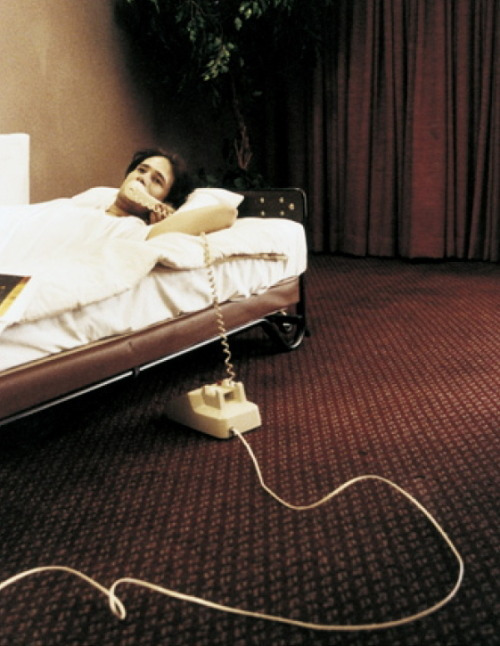

(photos by Merri Cyr)
It was like waving at someone in another dimension.
Two days into the tour I looked down at the t-shirts we all had to wear, a mish mash of Bible references and key words in the shape of a cross, printed on ugly mint green and coral orange t-shirts (the orange stained my bra for weeks, it was horrible). The choir was given a 'theme' every year for the tours, one inspirational word that was supposed to drive the spiritual growth of 9-12 graders. The year in Chicago had been the "restore" tour (which is extremely problematic the longer you dwell on it). "What's the tour name this year?" I blearily asked one of the chaperones. "Oh, it's the Grace tour. Make sure you use the hashtag."
The tour was the first time I encountered an actively hostile audience during any of the shows. Looking back that seems strange, but nonetheless. We often performed for unsheltered folks, who were forced to listen to us boisterously praise the Lord as they tried to get something to eat or were otherwise seeking support. The show in question took place in a parking lot where an extremely questionable Christian charity group set up once a week to attempt to convert anyone who needed a hot meal. Somewhere in the hour long set of worship music, teenagers banging on trash cans under the guise of performing STOMP (yes, like the off-Broadway thing, which no one even knew because it was such a dated concept by 2016), a capella chamber music (I did that too), and emotionally manipulative skits, one of the people in the crowd started to yell. I don't remember the exact verbatim statements, but it was along the lines of "Why are you singing when we need food, need shelter?"
That night, at the mandated debrief/devotional portion of the night before they finally let us all go to bed, many of my peers expressed that they had never thought of the work that way, as something that could be potentially a nuisance, bothersome, something people were forced to suffer through in order to have their basic needs met.
That was a question I had been asking myself for over a year at that point, ever since pretending to "restore" Chicago in 2015. Did anyone really find inspiration in a bunch of white middle class teenagers singing their little hearts out over Coldplay instrumentals? Did the sloppy manual labor we tried to do at various places for people in need really benefit anyone? Did tired building custodians go back in the day after and correct the naive mistakes of suburban teenagers who were not given any option other than to figure out ways to be helpful? Much ink has been spilled over the epidemic of teenage-centered volountourism from churches, sending unqualified children to do labor to get closer to God, etc. I was tired of treating people less fortunate than this community like pawns to achieve karma points. I was tired of singing bad music. I was tired of feeling like a ghost.
When we got back on the bus, or returned to the hotel, or had mildly unsupervised free time at venues, I would check back in with Jeff. I listened to So Real over and over again, its simplicity was spellbinding. One night they carted us to Disney Springs, the shopping district on Disney property, to burn off steam before getting ready for another day of presumably hard work. I was too tired to traipse around, half-heartedly tagging along with folks that seemed indifferent to my presence. I sat down with a shaved ice and watched a pair of living statues performing in the humid evening, bronze and vaguely Victorian looking, glimmering under the ambient theme park lights. I watched them work a crowd while I listened to So Real and briefly became lost in a story that to this day I cannot recall correctly, some short-lived idea about statues yearning to be real. I started crying, not helped by the schedule that left us overworked and under-rested, and a lack of access to protein and actual nutrients beyond pizza.
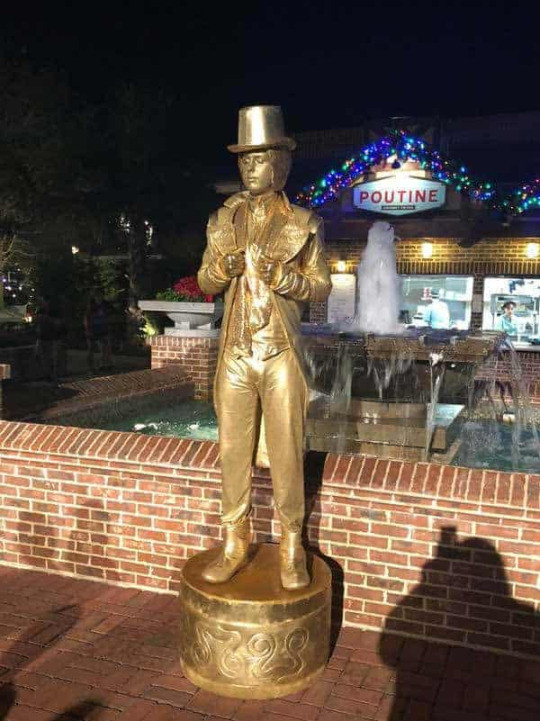
Every night, I thought of Jeff on a hotel bed, years ago, in the same place as me. Was he alone? Did his worldview, the questions he screamed out towards the end of Eternal Life, his propensity for diving into the biggest emotions, isolate him like they isolated me?
It's easy to fall in love with someone who has passed, it makes it easy to assign them traits you admire or romanticize their short life. I don't think I fell in love with Jeff in that way, although it is undeniable that he was beautiful. I didn't need lips to kiss, I needed a shoulder to cry on, and it felt like there was a beautiful friend helping me chart a course out of self-loathing and getting mired in philosophical mud.
The last night of the tour, before the Friday fun day when all pretense of work is thrown out to go to a theme park or explore safely curated areas of the city, it was expected that somebody, a youth pastor or the choir director or a well meaning chaperone, would give a sort of pious pep talk, asking us if we really believed all the things we were singing, or were we just having fun on a spring break trip? Anyone who is familiar with Cry Nights at evangelical summer camp knows this tactic. Overstimulate and exhaust young people with still developing brains, feed them a steady diet of sweets and carbohydrates, and then the claws of emotional manipulation will sink so much deeper. And then make them go sing a concert with exhausted voices and clogged sinuses from crying, where their emotions and convictions will run so high, that surely no one in the audience will go unmoved.
That last pep talk reared its ugly head before the last concert, as I presumed it would. But I didn't really listen, while the tears flowed around me. In my head, I was sitting across from Jeff Buckley at the pullout bed, quietly centering myself, trying to find peace in the midst of the chaos. We smiled at each other and said nothing in this vision.
I returned home, glad to be done with youth choir forever, vowing ot never go back to the church I had been raised in. (and also I finally listened to Mojo Pin since it didn't make it onto my iPod)
I was trying my best to give myself grace under strange and infuriating circumstances. Jeff taught me how. Being curious and sensitive is a strength, rage can fuel beauty, seeking authenticity is a worthy journey. That this situation was temporary and I would not have to live my life beholden to the whims of a religious institution that actively benefitted from my fears. Grace, real grace, given freely without the expectation of a transaction, is beautiful. I returned home, a week before my eighteenth birthday, and began the long process of figuring out what I actually believed, what I actually valued, and pursuing the things that filled me with joy at full speed, a road that I am still traveling.
7 notes
·
View notes
Text

The African Episcopal Church of St. Thomas was founded in 1792 in Philadelphia as the first African American Episcopal Church in the US. Its congregation developed from the Free African Society, a non-denominational group formed by African Americans who had left St. George’s Methodist Church because of discrimination and segregation by class. They were led by Absalom Jones, a free African American and lay Methodist preacher. As his congregation became established, he was ordained in 1802 by Presiding Bishop William White as the first African American priest in the Episcopal Church. Bishop White ordained William Levington as a deacon at this church.
While the congregation has worshipped in several different buildings, it has remained active since its founding. The site of the original building, dedicated on July 17, 1794, at Fifth and Adelphi streets, is now covered by the passageway/plaza known as St. James Place. It worshipped for a time on Twelfth Street south of Walnut Street, before following changing demographics and moving out of the downtown area to West Philadelphia, where the congregation worshipped at 57th and Pearl Streets, and 52nd and Parrish Streets. It moved to Philadelphia’s Overbrook Farms neighborhood, where it worships at a church at the intersection of Overbrook and Lancaster avenues. #africanhistory365 #africanexcellence
2 notes
·
View notes
Text
Introduction
For most of the past two millennia, Christian churches have not only accepted slavery, but have also participated in the slave trade and owned human property. The ethics of Christian slaveholding, however, have changed significantly. While Christians owned other Christians without controversy during the late ancient period, Christian churches began to forbid that practice over time. By the early modern period, it was considered taboo for Christians to own other Christians, although the practice sometimes continued illegally. While some individual Christians, including ministers and members of the clergy, questioned the legitimacy of slavery during the early modern period, it was not until the 18th century that a small minority of Christian churches began to assert an abolitionist stance.
Even then, it was deeply contested. For the majority of the early modern period, most Christian churches—both Catholic and Protestant—supported slavery and benefited from the institution. Even the Quakers (Society of Friends), who were leaders in the abolitionist movement, took a century to disown enslavers from their congregations. In the United States, many Christian denominations split on the issue of slavery in the 19th century, and Christian ministers and missionaries developed robust defenses of slavery based on Christian scripture and proslavery theology.
Enslaved and free Black Christians were the most ardent abolitionists, and they drew on scripture to support antislavery and abolition. While a significant amount of scholarship has debated whether Christian churches were pro- or anti-slavery, some of the most exciting research about the church and slavery has focused on why enslaved people became Christian and how they used the bureaucracy of the church to advocate for their rights and to protect their communities.
Much of this scholarship has emerged from a Latin American context, where archival records are more robust, but there are also important studies focusing on Black churches in the North America, especially the role of the African Methodist Episcopal (AME) and other African American–led churches. Within this area, scholars debate the meaning of conversion as well as the relationship between African religions and Black Christianity. Recent scholarship has emphasized that Africans and their descendants were not passive recipients of Christianity.
Rather, many enslaved men and women actively sought out baptism and used church institutions not only as a place of worship, but also as a way to protect themselves and their families. Another significant area of research has examined the relationship between the church, slavery, and race. Scholars have demonstrated how European Christians drew on categories of religious difference as they developed new racial categories. They have shown how categories like “Whiteness” and “purity of blood” were transformed within the context of slavery, as enslavers sought to reconcile slaveholding with Christian practice.
General Overviews
As Christian nations began to build empires across the Atlantic, the pope condoned the enslavement of Africans as long as certain conditions were met. A century later, Protestant nations followed Catholic lead in creating colonial slave societies in the Americas, although they developed different laws and practices related to slavery and Christianity. Blackburn 1997 provides an overview of the shifting relationship between slavery and Christian churches in European empires, while Davis 1966 is a classic study of slavery from Antiquity to the early modern period.
Over the past decades, scholars have sought to understand the history of the church and slavery from the perspectives of non-Europeans, especially Africans and Native Americans. Sanneh 2006 and Gray 2012 examine the history of Christianity in Africa, focusing on the role of African Christians. Johnson 2015 is a wide-ranging study of the relationship between African American religions (including Christianity), slavery, and colonialism, while Frey and Wood 1998 is an important survey of African American Protestantism in the British Atlantic world. Gin Lum and Harvey 2018 contains several essays relevant to the study of religion, race, and slavery. Reséndez 2016 explores the under-examined history of Native American enslavement.
Blackburn, Robin. The Making of New World Slavery: From the Baroque to the Modern, 1492–1800. London and New York: Verso, 1997. Blackburn examines the Old World foundations for American slavery. While not the focus of his study, Christian churches play a central role in creating a precedent and a legal justification for slavery in the New World.
Davis, David Brion. The Problem of Slavery in Western Culture. Ithaca, NY: Cornell University Press, 1966. The first in David Brion Davis’s classic trilogy about slavery and abolition. Davis examines the ancient history of slavery and traces the relationship between slavery and the church in Europe and the Atlantic world.
Frey, Sylvia, and Betty Wood. Come Shouting to Zion: African American Protestantism in the American South and British Caribbean to 1830. Chapel Hill: University of North Carolina Press, 1998. An important survey of Afro-Protestantism in British America and the early United States. Early chapters cover the history of Catholicism in Africa and the persistence of African religious traditions under slavery in the Americas. Later chapters cover Protestant missionary efforts, and the expansion of Afro-Protestantism after the Great Awakening.
Gin Lum, Kathryn, and Paul Harvey, eds. The Oxford Handbook of Religion and Race in American History. New York: Oxford University Press, 2018. An excellent edited volume with over thirty essays, covering race and religion from the colonial period until the 2020s. Several essays are relevant for discussions of the church and slavery.
Gray, Richard. Christianity, the Papacy, and Mission in Africa. Maryknoll, NY: Orbis, 2012. A posthumously published set of essays. Gray’s overarching argument is that African Christians played a central role in initiating papal interest and involvement in sub-Saharan Africa. Several essays touch on the history of slavery and the slave trade.
Johnson, Sylvester. African American Religions, 1500–2000. Cambridge, UK: Cambridge University Press, 2015. DOI: 10.1017/CBO9781139027038While not focusing exclusively on the church or Christianity, Johnson’s synthesis of five hundred years of African American religions is an indispensable study that traces the relationship between Black religion, slavery, racism, and colonialism within a transatlantic frame.
Lampe, Armando, ed. Christianity in the Caribbean: Essays on Church History. Kingston, Jamaica: University of the West Indies Press, 2001. A helpful overview of the relationship between the church and slavery in the Caribbean, with essays on Catholic and Protestant churches in different imperial and national settings.
Reséndez, Andrés. The Other Slavery: The Uncovered Story of Indian Enslavement in America. Boston and New York: Houghton Mifflin Harcourt, 2016. The history of Native American enslavement has long been under-examined, largely because indigenous slavery was illegal for most of colonial American history. This study does not focus on the church explicitly, but the relationship between Catholicism and Indian slavery is an important theme.
Sanneh, Lamin. “Christianity in Africa.” In The Cambridge History of Christianity. Edited by Stewart Brown and Timothy Tackett, 411–432. Cambridge, UK: Cambridge University Press, 2006. Sanneh’s survey traces the changing role of Christianity—both Catholic and Protestant—in West and East Africa, focusing on the role of Christian missions and the impact of slavery and colonialism
Abolition of Slavery
Michael Guasco, Matthew Wyman-McCarthy
Subject: Atlantic History »
Date Added: 2010-05-10
Abolition of SlaveryIntroductionThe abolition of slavery in the Atlantic world occurred during the 19th century, but its origins are generally recogni...
Abolitionism and Africa
Bronwen Everill
Subject: Atlantic History »
Date Added: 2016-02-25
Abolitionism and AfricaIntroductionFrom the beginning of the organized abolition campaigns in the Atlantic world in the 1780s, antislavery campaigners...
Africa and the Atlantic World
David Northrup
Subject: Atlantic History »
Date Added: 2010-05-10
Africa and the Atlantic World Introduction Africa from Morocco to the Cape of Good Hope experienced new contacts with Europeans during the...
African American Religions
Stefania Capone
Subject: Atlantic History »
Date Added: 2011-08-26
African American Religions Introduction Since its beginnings, the study of African American religions has combined anthropological and histori...
African Religion and Culture
David Northrup
Subject: Atlantic History »
Date Added: 2010-05-10
African Religion and Culture Introduction Africa has been home to a great variety of religious and other cultural practices and beliefs, i...
#Church and Slavery#White Lies#religion#Black people enslaved by the church#american slavery#world history
11 notes
·
View notes
Text

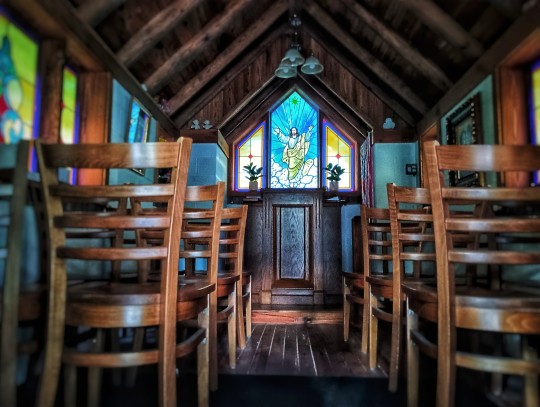
The smallest Church of America
Christ's Chapel in Memory Park. Located in north McIntosh County, this little sanctuary has become a stop for thousands of I-95 and US Highway 17 travelers. Situated near the South Newport River, the church was constructed in 1949, and represented a dream come true for Mrs. Anges Harper, a local grocer. She wanted the chapel to serve as a place of meditation and rest for weary travelers. Although small, the structure is not lacking in character and beauty with stained glass windows imported from England. Local ministers still lead non-denominational worship there every third Sunday and the church is very popular for it remains one of the most unique structures along the Georgia Coast Scenic Byway.
8 notes
·
View notes
Text
Ásatrú, Gender, Polyamory, and more.
A friend in Port Callahan asked about these things, prompted by the following image, and well. I suppose I can catalogue my journey with heathenry up to this point here, you know?

So, as you probably know, I am a practicing - and learning - Ásatraur. What is an Ásatraur, though?
Well, colloquially we're known as Norse Pagans. We worship the Gods known as Odin, Thor, Tyr, Freyja, lots of Gods. Like there are a lot. Also, Loki! Loki gets a bad rep, but he's... Kinda' just a force of change? Like you can't really say "Odin bad Loki good" it does not work that way, that's a Christian-influence simplification.
Loki does make for a great antagonist in narratives based on the Eddas though, haha.
Anyway, let's get back to it. We mostly just vibe! We don't really actively recruit, we just let people pick up the phone, so to speak. That's what I did. I felt a pull to the Norse Gods as early as 11 years old. That was a... Jam packed time in my life, let me tell you.
The first real piece of it was this funny little emblem from Halo 2.

"Valkyrie"
This has been my go-to emblem for a looooong long time. The emblem isn't significant in its own way to my religion I don't think, but it stuck with me. What was another piece? Well, any number of things - growing up a curious young boy, curious about the world. The idea of pagans was interesting - and even as a young non-denominational christian, I didn't want to discount folks' religions. I didn't see any reason they couldn't coexist. My dad called me a Pagan for believing that, but, well he would be right eventually.

This is Van. Vanessa Thrace. She was my first attempt at a Truesona, back when I was dating a friend - wanted someone that was closer to me. Both of those things changed at some point, but keyword - changed! They didn't end! Because when I moved here to my dear wife @opashoo, I suddenly was in a Filipino household - a proudly Filipino household. These were second generation immigrants born here from a first generation immigrant. They'd brought back quite a bit from the homeland, culturally. The kids were raised American but the mother is anything but.
And I... sort of felt out of place. Over the last few years I'd become immensely disenfranchised with how I was raised - simply American. No heritage. No traditions. Just American. What was my heritage? War, apartheid, glorification of war, consumerism, food, whiteness and an overbearing reliance on Christianity.
Fuck that. Fuck all of that dude.
So I asked myself, what do I have? Can't just take any old culture, that's appropriation. But, then I remembered... "Hey, wait. My dad did a genealogy test. He came up mostly Scandinavian. We already knew this but we thought it was scottish ancestry - no, turns out it was Vikings. Huh."
And theeen a loooot of things clicked.
Now in this moment I need to detail something I skipped over.

Oh Kara Thrace, you crazy cunt. You crazy crazy bitch.
Definitely one of my biggest fictional crushes ever - Kara Thrace was the baddest bitch on TV when I was a young boy. I'd had a handful of pilot idols, sometimes they were women and all that mattered to me was, "Were they good pilots?" - and Hel the fuck yeah they were. Especially her.
Kara's the best pilot. The best fucking pilot ever. Luke Skywalker? Please. Wedge Antilles? As if. Darth Vader? IDK they're pretty supernaturally gifted both of them. Fox McCloud, Han Solo, Spike Spiegel, Hoban Washburn?
All great, but none of 'em are Kara Frakking "Starbuck" Thrace.
After all, who could be? Well, that was a worthwhile question to answer. So... I took the name, Kara. I decided it would be my promise to myself. "Live up to the name. Be the best pilot you can be."
Even if my Deuteranopia had other plans. For a little while there I was, actually, extremely good and known to be, extremely fucking good.

Oh boy was I ever.
Firaxa-1 "Dodger". A name that's gonna' live in a lot of heads for a loooooooong time to come. But that's a story for another day.
Well you see, choosing Kara was accidentally... prescient.
You see, Kara, really Kára, is a name of Scandinavian origin. It is the name of one of the Valkyries - a particularly tempestuous one. I can relate. They say that it's Italian but... Nah, it's not solely Italian.
Well, this was the name I picked. It pretty accidentally lined up with my faith-to-be, so that was really fucking cool. I think I sort of knew though, having played God of War 4 recently and beating every Valkyrie that wasn't named Sigrun.
Anyway. With my love's permission - because... Well, we have a lot of loud racists in the Asatru community - I had to make sure sure trusted her new girlfriend with this exploration, and not to get weird and crazy with it. And she did - I got her permission and abandoned Christianity after many years of disillusionment, feeling unwelcome, unwanted, and uncared for by the faith.
There's still so much I'm learning. I still haven't read the Eddas. I REALLY need to. But I've celebrated Midsommar, Yule, a couple of times, a couple of Blots, and I personally got my mother in law into Mead - she LOVES the stuff and she doesn't even drink.
Anyway.
That's how I ended up an outspoken queer heathen. So... What about the subject? Well, here's where Van comes back in.
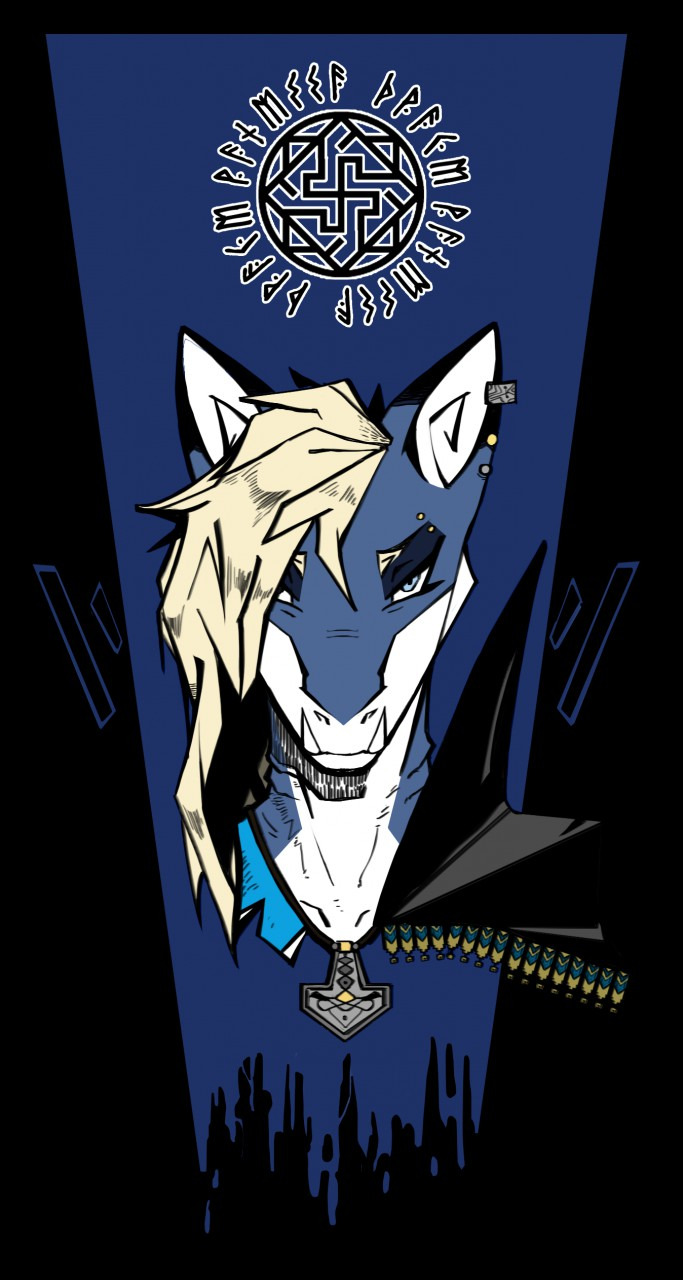
Van was the one I targeted for heathening up - as, at the time, Sal was in a different kind of slot. So I used Van - who had been a somewhat cynical truesona (Unemployed, played gigs at bars, lived out of a Van, etc.), into something a lot more aspirational.
Van stopped being just a Shark, and ended up a Ru, which are the shark folk of my own setting, Beacon.
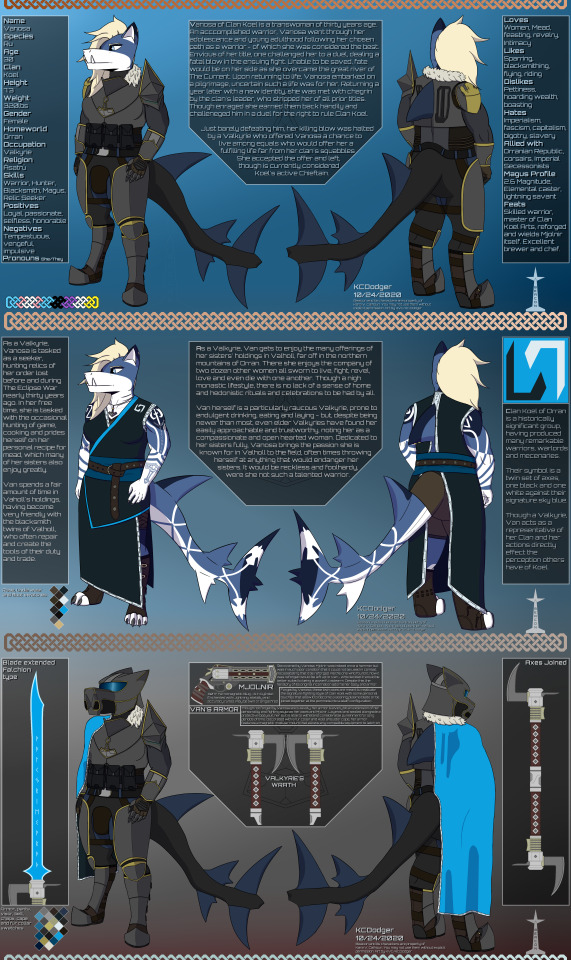
It was certainly a choice to prominently feature Heathen imagery in Beacon as I continued to develop it, but it was, I think, the right choice. Through Van I explored Ru identity - and now they're Shark Orc Vikings who are kinda' fuzzy, in space. They're also huge. Like, 7 feet tall. (Hilariously, not huge by furry shark standards, but I'm not talking about my gripes with Furry Shark Twitter HERE... Not yet... Not today!)
And out comes the chief representative of the people to the audience thus far, as a character. Van had become something more solid in my setting and was a... "Fully realized" me. She's loud, she's boisterous, she's hot as fuck, she's heavy but tough, she's a badass and she's a Valkyrie! She's just cool.
And yeah, that's Van. But my relationship to heathenry does not stop there. Because, for you see, I am transgender. I am very very transgender.
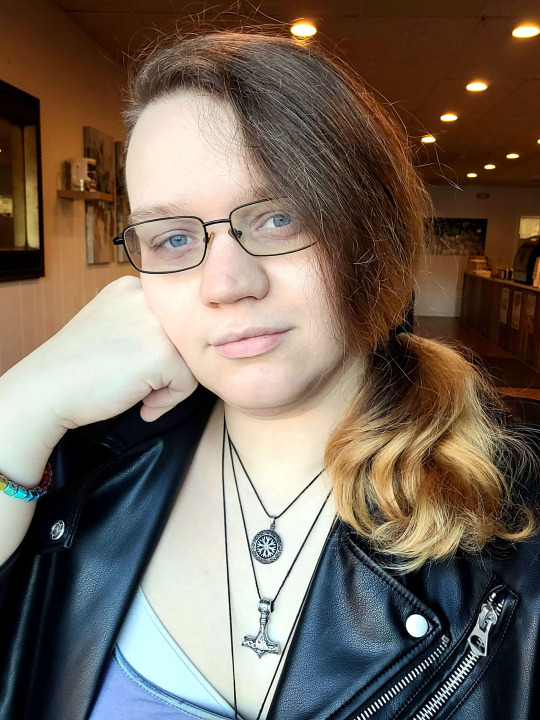
And I make no effort to hide that I am a Heathen. I tell people, when relevant, that I'm transgender. At least when it feels safe to. I do not hide that I am MADLY in love with my beautiful wife who is very much not white. I do all these things in opposition to the bastards who try to steal my ancestors' symbols and use them for eugenics, bigotry, hatred, segregation - evil shit. Evil shit that they should NOT be safe for advocating.
There will come a day where someone gets the wrong idea. Maybe they'll think I'm a horrid bigot for wearing these symbols - I wouldn't blame them. I'm over six feet tall, pale as shit, blonde and blue eyed- I'm like, the PICTURE of what weirdos think Viking women should be.
lol, too bad for those types, I'm transgender.
But, also, like... There'll come a day where some other heathen who wants to stir shit up will figure out I'm not like them, and want to get into a scuffle.
I'm ready for both of those things. One can be handled by talking, the other needs some fists.
But, yeah. It's part of why I'm so outwardly, loudly, a heathen. Why I wear every single thing proudly. Because if I don't all we collectively are gonna' be known for is hate. We can't have that. Not when we're gaining more members every day, not when we can set good examples, not when we can CHOOSE to oust fascists, bigots, and other bad faith actors.
We have to. We cannot let them own what is ours and use it for hate, when our own ancestors didn't give a single shit about genes, about where you were from, what you did - just who you were. And - when I say ancestors, I don't mean blood, I do mean ideological ancestors. I may have blood roots but Ásatrú is for all races, sexuality, genders. But not all politics or beliefs. No sir.
Be whatever gender you want, date whoever you want, have as many partners as you want and it's completely fine for beating the shit out of someone who calls you a slur. That's what I, what we, believe in.
The original post refers to Ergi, by the way - and it is not a term used lightly. It was a pretty grave insult and saying it made you fair game for getting an axe to the face, so if you did you... pretty much had to be ready to bite the dust. Dunno' about the polyamory, but I'm pretty sure our Gods aren't pearl clutchy about several partners. The Aesir and Vanir got busy wildly in the Eddas.
Anyway, hope this is clarity enough. Glory to the Allfather - and that's ALL father, not SOME father.
25 notes
·
View notes